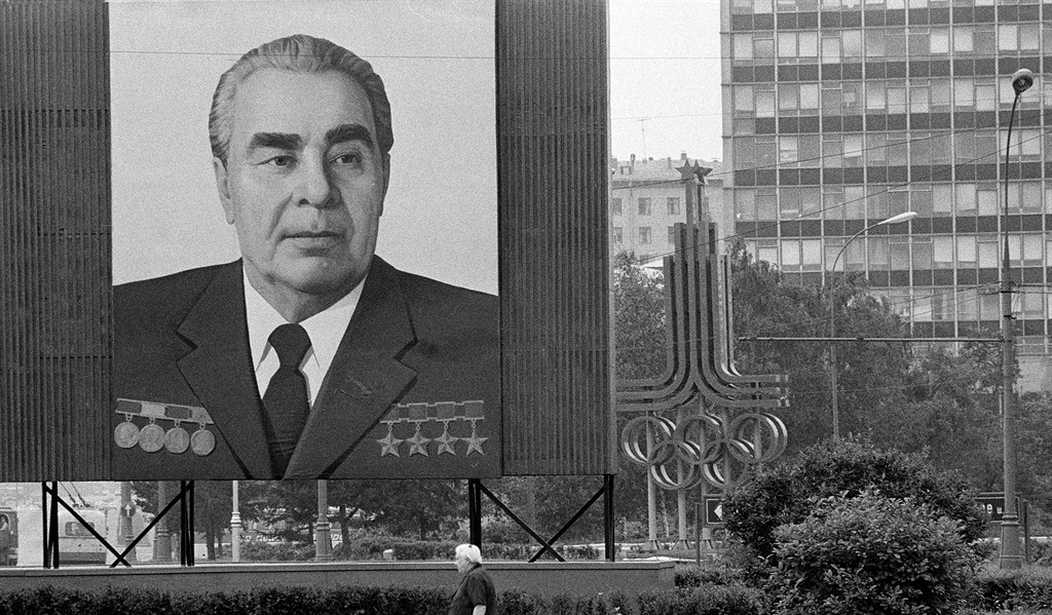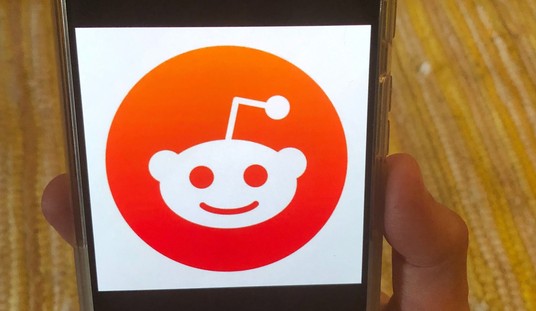Niall Ferguson has joined The Free Press; his first piece is sobering and, unfortunately, spot on.
Ferguson, for those of you unfamiliar, is a distinguished historian with positions at Stanford's Hoover Institution and Harvard's Belfer Center for Science and International Affairs. As you know, I am not a credentials guy, so I'll add that he is a very smart guy and a great addition to the growing stable of writers at The Free Press.
Bari Weiss provides a much better bio than even Ferguson does of himself, so I will quote it:
Bari here.
In the early days of The Free Press, I put together a fantasy roster. Niall Ferguson was at the top of it. Today, I am thrilled to announce that Niall is joining The Free Press as a biweekly columnist.
Niall’s résumé is a little much. He has two degrees from Oxford and has taught there as well as at Cambridge, NYU, the London School of Economics, and Harvard. He’s now a senior fellow at Stanford’s Hoover Institution.
Given the present state of many of those institutions, you might dismiss Niall as an establishment hack who shapes history to serve the acceptable narrative.
That isn’t Niall. Unlike so many of the excellent sheep that enjoy tenure in academe, Niall thinks for himself, a quality you can see on display in any one of his 16 books (and counting), including The Pity of War: Explaining World War I; Kissinger: 1923–1968: The Idealist (part one of a two-part biography); The Square and the Tower; and, most recently, Doom: The Politics of Catastrophe.
For this incredible body of work, King Charles just knighted Niall a few days ago.
In recent years, Niall has been one of the most thoughtful and intellectually honest voices in the cultural battle that has engulfed America’s most storied institutions—including academia. In an epochal essay he published this past December in The Free Press, “The Treason of the Intellectuals,” he argued that “American academia has gone in the opposite political direction—leftward instead of rightward—but has ended up in much the same place” as German academia pre–World War II. “The question is whether we—unlike the Germans—can do something about it.”
Niall is doing something. He is one of the founders of the new University of Austin, where I sit on the board alongside him and where, this fall, we will welcome the university’s first class.
Wowza. As I said, a smart guy and one worth listening to.
Ferguson's first essay as a biweekly columnist says aloud what many of us fear: in the new Cold War, the United States resembles the collapsing Soviet Union more than the plucky United States of the Reagan era.
The parallels are many and disturbing, although, unlike the Soviet Union, I don't believe that a collapse will be inevitable in the near future. Because there is a segment of America that still works--best exemplified by places like Texas, Florida, and some other Red States, and embodied by Elon Musk (whatever you think of his politics), there is still hope here in a way that was never true in the Soviet Union.
But the higher the toll rises of deaths of despair—and the wider the gap grows between America’s nomenklatura and everyone else—the less confident I feel that our own homegrown pathologies will be slower-acting. 13/13 https://t.co/Zwxj3ChLLb
— Niall Ferguson (@nfergus) June 18, 2024
But hope is not a plan, and our Establishment is failing and falling apart.
The witty phrase “late Soviet America” was coined by the Princeton historian Harold James back in 2020. It has only become more apposite since then as the cold war we’re in—the second one—heats up.
I first pointed out that we’re in Cold War II back in 2018. In articles for The New York Times and National Review, I tried to show how the People’s Republic of China now occupies the space vacated by the Soviet Union when it collapsed in 1991.
This view is less controversial now than it was then. China is clearly not only an ideological rival, firmly committed to Marxism-Leninism and one-party rule. It’s also a technological competitor—the only one the U.S. confronts in fields such as artificial intelligence and quantum computing. It’s a military rival, with a navy that is already larger than ours and a nuclear arsenal that is catching up fast. And it’s a geopolitical rival, asserting itself not only in the Indo-Pacific but also through proxies in Eastern Europe and elsewhere.
But it only recently struck me that in this new Cold War, we—and not the Chinese—might be the Soviets. It’s a bit like that moment when the British comedians David Mitchell and Robert Webb, playing Waffen-SS officers toward the end of World War II, ask the immortal question: “Are we the baddies?”
That, by the way, is a terrific skit. Hilarious.
We often worry that the United States is mirroring the decline of Rome, and the parallels between then and now are similarly striking. That is a metaphor that I often use, both because our Founding Fathers looked to Rome's virtues and vices to help shape America's founding (and it's no coincidence that Washington is filled with classical architecture, and unfortunately, no coincidence that modern Washington has built up a lot of Soviet-looking brutalist buildings).
But the Soviet Union, too, is an unfortunately apt metaphor for much of what is happening. An ossified bureaucracy, fiscal incontinence, an obsession with Narrative over reality, and, of course, leadership with the mental and physical capacity of people in nursing homes.
A chronic “soft budget constraint” in the public sector, which was a key weakness of the Soviet system? I see a version of that in the U.S. deficits forecast by the Congressional Budget Office to exceed 5 percent of GDP for the foreseeable future, and to rise inexorably to 8.5 percent by 2054. The insertion of the central government into the investment decision-making process? I see that too, despite the hype around the Biden administration’s “industrial policy.”
Economists keep promising us a productivity miracle from information technology, most recently AI. But the annual average growth rate of productivity in the U.S. nonfarm business sector has been stuck at just 1.5 percent since 2007, only marginally better than the dismal years 1973–1980.
The U.S. economy might be the envy of the rest of the world today, but recall how American experts overrated the Soviet economy in the 1970s and 1980s.
And yet, you insist, the Soviet Union was a sick man more than it was a superpower, whereas the United States has no equal in the realm of military technology and firepower.
Actually, no.
We have a military that is simultaneously expensive and unequal to the tasks it confronts, as Senator Roger Wicker’s newly published report makes clear. As I read Wicker’s report—and I recommend you do the same—I kept thinking of what successive Soviet leaders said until the bitter end: that the Red Army was the biggest and therefore most lethal military in the world.
We could argue all day long about this last point, but I happen to agree with it. America's technological capacity is, I believe, unmatched. Our strategy, our industrial base, our ability to manage procurement, and the development of new programs is not so much. We rely too much on technological superiority and too little on quantity, and the ability to rapidly repair and replace platforms is not up to the task of winning a near-peer war. We are spread too thin to meet the obligations we have chosen to take on.
Either retrench--and I doubt Americans would like what a world without American supremacy would really look like, whatever they say--or be better prepared to meet our commitments.
In Wicker’s words, “America’s military has a lack of modern equipment, a paucity of training and maintenance funding, and a massive infrastructure backlog. . . . it is stretched too thin and outfitted too poorly to meet all the missions assigned to it at a reasonable level of risk. Our adversaries recognize this, and it makes them more adventurous and aggressive.”
And, as I have pointed out elsewhere, the federal government will almost certainly spend more on debt service than on defense this year.
The debt service crisis is much worse than you think, because all that debt has been accumulated not in infrastructure investments that will have some major payoff in the future, but in consumption that will beget even more consumption well into the future.
We are eating our seed corn.
It gets worse.
According to the CBO, the share of gross domestic product going on interest payments on the federal debt will be double what we spend on national security by 2041, thanks partly to the fact that the rising cost of the debt will squeeze defense spending down from 3 percent of GDP this year to a projected 2.3 percent in 30 years’ time. This decline makes no sense at a time when the threats posed by the new Chinese-led Axis are manifestly growing.
Even more striking to me are the political, social, and cultural resemblances I detect between the U.S. and the USSR. Gerontocratic leadership was one of the hallmarks of late Soviet leadership, personified by the senility of Leonid Brezhnev, Yuri Andropov, and Konstantin Chernenko.
The gerontocracy is undeniable. Just look at the most powerful people in the country, and almost all of them are very old, and in some cases, literally doddering and senile.
Joe Biden still has a shot at returning to the Oval Office next January, which is shocking. He reminds me of Konstantin Chernenko, and I have said as much several times. He gets trotted out in proof-of-life moments, but he clearly is not all there.
Chernenko, by the way, was 72 when he became General Secretary and died at 73.
As with the Soviet Union, Americans have lost faith in their institutions, and with that loss of faith has come a loss of hope. Millions are dying "deaths of despair" and the young and not-so-young don't believe that the society into which they were born is worth saving or fighting for.
The Soviet Union was always built on a lie, but the modern American state is propped up by a web of lies and little else. America has never been everything we hoped it would and could be, but for centuries there was reason to hope because we were becoming a "more perfect union."
Many Americans don't think that anymore, and it is hard to argue with them. At least about the America the elites run and are creating.
In the Soviet Union, the great lies were that the Party and the state existed to serve the interests of the workers and peasants, and that the United States and its allies were imperialists little better than the Nazis had been in “the great Patriotic War.” The truth was that the nomenklatura (i.e., the elite members) of the Party had rapidly formed a new class with its own often hereditary privileges, consigning the workers and peasants to poverty and servitude, while Stalin, who had started World War II on the same side as Hitler, utterly failed to foresee the Nazi invasion of the Soviet Union, and then became the most brutal imperialist in his own right.
The equivalent falsehoods in late Soviet America are that the institutions controlled by the (Democratic) Party—the federal bureaucracy, the universities, the major foundations, and most of the big corporations—are devoted to advancing hitherto marginalized racial and sexual minorities, and that the principal goals of U.S. foreign policy are to combat climate change and (as Jake Sullivan puts it) to help other countries defend themselves “without sending U.S. troops to war.”
In reality, policies to promote “diversity, equity, and inclusion” do nothing to help poor minorities. Instead, the sole beneficiaries appear to be a horde of apparatchik DEI “officers.” In the meantime, these initiatives are clearly undermining educational standards, even at elite medical schools, and encouraging the mutilation of thousands of teenagers in the name of “gender-affirming surgery.”
There is another America, though, which is fighting back against the elites. One that still works and produces enormous wealth, and that creates room for happy and healthy families, and which rejects the sclerotic ideology of decline.
America is still worth fighting for. The bones are still strong. There is much to admire and preserve.
But Ferguson speaks the truth: the path we are on is creating a Soviet America, and it promises an ugly future.
Read the entire essay. But don't get depressed. Get determined.








Join the conversation as a VIP Member